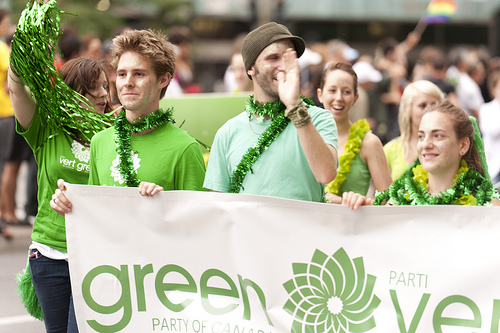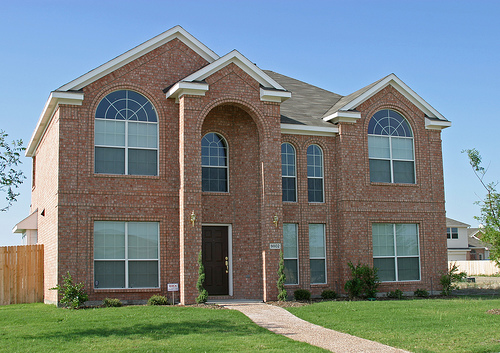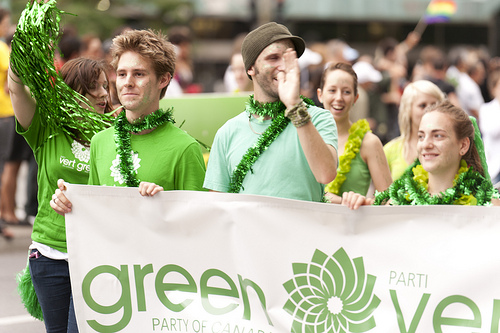 Out and about to save the planet.Photo: Jason PierA recent poll says gays and lesbians are more likely to support the environment, especially when voting or shopping, and a bigger percentage say they care about sustainability. Here’s the breakdown:
Out and about to save the planet.Photo: Jason PierA recent poll says gays and lesbians are more likely to support the environment, especially when voting or shopping, and a bigger percentage say they care about sustainability. Here’s the breakdown:
- 55 percent of LGBT adults vs. 33 percent of straight adults say they care a lot about green issues
- 48 vs. 25 percent consider the environment when shopping
- 45 vs. 27 percent highly value a political candidate’s stance on green issues
- 25 vs. 17 percent use the environment as a factor when considering a potential employer
Echelon Magazine reported similar findings in 2009: 33 percent of LGBT adults had seen or read An Inconvenient Truth, compared to 20 percent of heterosexuals, and 75 percent of gays believe global warming is happening right now (versus 53 percent of straight adults).
So why are the gays greener? For starters, gay rights and climate change are both human rights issues. Kathleen Connell writes in San Diego Gay & Lesbian News, “Our own hampered civil and personal lives mirrors [sic] a disregard for our home planet, which is in crisis from a century of abuse. The mentality that allows desecration of the ecosystem is the same mindset that continues to allow the second-class citizenship of LGBT people everywhere.”
Grist asked those at the helm of several LGBT sites what they thought might be going on:
They’re progressive voters in cities. The Advocate Senior Editor Neal Broverman says, “Gay and lesbian people vote progressively, so it seems natural that they would live progressively — like being ‘green,’ for example. Also, many LGBT people live in urban areas, which are hotbeds for environmentally conscious ideas and lifestyles.”
They’re already advocates for social change. Kristin Russo of Everyone Is Gay told Grist, “Despite the fact that ‘going green’ may not be directly related to issues of sexuality, advocating for change is something with which many in the LGBTQ community have experience.” Her partner and site co-founder Dannielle Owens-Reid quips, “It’s like, maybe if we focus on going green you won’t notice that I’m holding hands with a girl.”
They’re conscientious. Michael Jensen, editor of After Elton, says, “Growing up gay causes folks to look at the world from the perspective of … being an outsider. I think that makes people much more aware of how actions … can affect both other people and, by extension, the environment. We realize how thoughtless actions — like dropping a homophobic remark without thinking about it — can hurt a person. So it doesn’t seem a leap to be able to know how our actions driving cars and consuming resources can impact the environment.”
They’re open-minded. Gerod Rody of Out for Sustainability says, “This planet is our home and caring about it is not just a straight-hippie thing anymore … When I came out, it opened my perspective on the world. I realized how connected we are, whether we like it or not. Once you wake up to your own sexuality there is no going back. The same is true for understanding we can make real progress in the environmental challenges of our time. It may be tough, but together we can see the next generations of kids, whether queer or straight, do more than survive. I know we can see them thrive.”
Want more? Here are some resources on same-sex sustainability:
- Out of the Closet Queer Sustainability Society, a Victoria, B.C.-based not-for-profit
- Green and Gay, a brand-new site highlighting green products from companies supporting LGBT rights
- The Advocate on how one biker “aims to spawn a bevy of eco queers”




